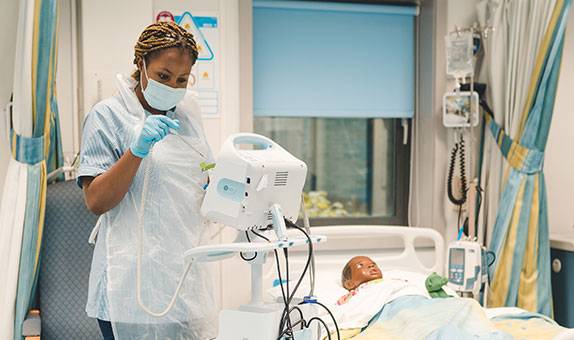Mental Health and Wellbeing Framework
Kingston University is committed to supporting the health and wellbeing of our community. We aim to create a supportive and inclusive environment where students are provided with a range of accessible services, activities and interventions to help them succeed while studying with us.
We recognise there are times when students may struggle due to the demands of studying and other pressures in their lives. We have developed this Mental Health and Wellbeing Framework to set out our whole institution commitment to protecting the wellbeing of students and staff. Our framework is aligned with the Student Minds University Mental Health Charter for which we are a Programme Member.
Our approach includes resources and interventions to enhance mental fitness, encourage healthy behaviours, and empower students to manage their own mental health and wellbeing. Students are enabled to access appropriate wellbeing support if they need it through a combination of internal services and external partnerships.
Commitments and limitations
The health and wellbeing of our students is a top priority. We recognise our legal duties and responsibilities in relation to health and safety regulations, the Equality Act 2010 and the safeguarding of children and adults at risk.
However, we also believe it is important for our students and their supporters to have absolute clarity about the boundaries of what we can and cannot provide as a university.
Our strategic aims
Through this work we aim to achieve the following measures of success:

Prioritise
The health and wellbeing of our community is perceived by students and staff as a priority.

Encourage
Healthy behaviours are actively encouraged and promoted.

Embed
Curriculum design and development includes consideration of how learning, teaching and assessment practices may impact student health and wellbeing.

Govern
Support services are well-governed, appropriately resourced, safe, effective, and accessible to all students.

Care
Support staff are approachable and interactions with students are underpinned by care, compassion, trust, and respect.

Listen
Students feel they are listened to and have autonomy over decision making regarding their support needs.

Support
Students can access information and support at a time and via a channel that is most suitable for them.

Improve
Institutional research and the evaluation of services and interventions inform decision-making and ensure continuous improvement.
Our whole-university approach
A whole-university approach must include both adequately resourced, effective and accessible mental health services and proactive interventions.
It must provide an environment and culture that reduces poor mental health, as well as supporting good mental health, and facilitating staff and students to develop insight, understanding and skills to manage and maintain their own wellbeing.
Hughes, G. & Spanner, L. (2019) The University Mental Health Charter
Learn
- Transition into university
- Learning, teaching and assessment
- Progression
Key action for 2023/24 – Implement the Navigate module in all courses as part of the Future Skills workstream of the Town House Strategy.
Support
- Support services
- Assessing risk
- External partnerships
- Information sharing
Key action for 2023/24 – Successful delivery of the Student Hubs project to deliver accessible and seamless provision of services that will enhance the satisfaction, welfare and success of all students.
Work
- Staff wellbeing
- Staff development
Key action for 2023/24 – Improve awareness of and access to staff guidance, learning and development in relation to student wellbeing.
Live
- Proactive interventions
- A health physical and cultural environment
- Social integration
- Residential accommodation
Key action for 2023/24 – Complete a review of student accommodation provision and develop an accommodation roadmap that will ensure a high quality and consistent experience for students across all university halls of residence.


